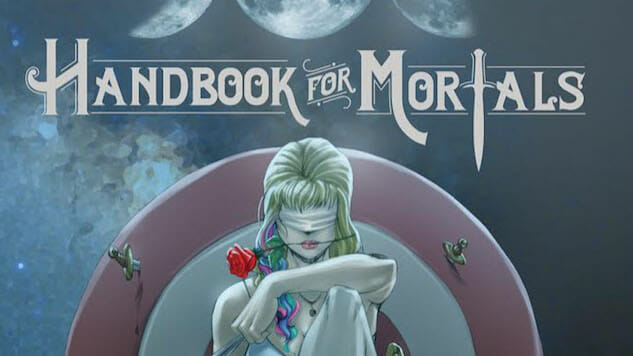YA Novel Removed From NYT Bestseller List Amid Questions of Deceptive Sales
Images by GeekNation Press Books News Handbook for Mortals
Can you buy your way to the top of the New York Times Bestseller List? One YA novel might have done just that.
Before the New York Times pulled it from the list entirely, Handbook for Mortals, a story about a girl caught in a love triangle backstage of a Las Vegas magic show that is (huge surprise) actually magical, sat at number one, blowing away the competition. Or so it seemed. Very quickly, bookworms across the internet started asking questions about the novel’s meteoric rise despite very little press, reviews or noticeable enthusiasm. The book, written by Lani Sarem, is published by GeekNation, which has never published a book before.
Led by a long article on Pajiba.com piecing together the inconsistencies, multiple members of the YA community have voiced confusion over just how the book had racked up so many sales already. The book released on Aug. 15, but good luck finding a copy—no bookstore, online or otherwise, seems to actually have it in stock. And this is strange: it is extremely unlikely that a book by a first-time publisher completely, totally sells out in its first week, especially when the book doesn’t seem to have built any real buzz in its community. On top of this, nobody seems to have read the book—there don’t even seem to be any reviews of it.
The article on Pajiba suspects this is part of an attempt by the publisher to boost its numbers and visibility—they suspect that members of the publishing team called NYT-reporting bookstores and placed orders that were large but not quite large enough to be deemed “corporate,” which can result in an asterisk next to the title on the bestseller list.
Then, in an interview with THR, the book’s author (Lani Sarem) responded in a series of vague, unfocused accusations leveled at the New York Times and the people who started asking questions in the first place. After saying she had no knowledge of any kind of concerted effort by the publisher to boost sales, she blamed the New York Times for not taking the trouble to support a first-time author. She compared the Twitter users expressing doubt at her sales to a “witch hunt,” and she also compared her own book to Fifty Shades of Gray for some reason. She seems to think that other people are jealous of her book’s success, when in reality they are questioning the validity of that exact success, because the evidence seems to point to it being built on thin air.
This story is probably going to get weirder before it’s over. We’ll see what the New York Times investigation turns up.